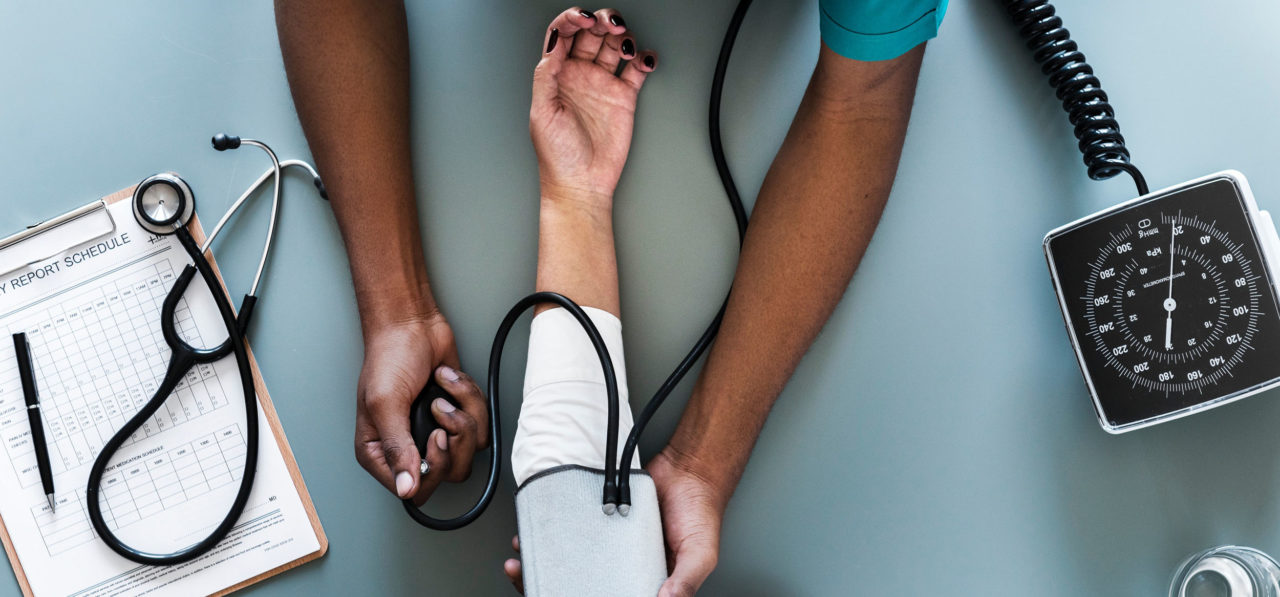5 Hypertension Risk Factors That Are Within Your Control
Hypertension, also known as high-blood pressure, is when the force of your blood against your arteries is consistently too high. Left untreated, it can result in long-term health problems such as heart disease, brain damage, and more. It’s a common problem and in fact, the Centers for Disease Control and Prevention reports that 1 in 3 Americans suffer from hypertension.
High-blood pressure is commonly known as the “silent killer” because it lacks significant warning signs, but that doesn’t mean it’s completely out of your hands. And while genetics do impact the likelihood of hypertension there are things you can do to help reduce the chances of being diagnosed.
Here are five things you can do proactively to lessen your risk of hypertension.
-
- Maintain your weight. Managing a healthy weight is important for your overall health, especially to help prevent chronic conditions such as diabetes, heart disease, and hypertension. When you are overweight, your body needs more blood to supply nutrients and oxygen to your tissues. In turn, the more blood there is circulating through your body, the greater the pressure becomes on your artery walls, which can ultimately lead to high blood pressure.
-
- Eat a balanced diet. To reduce your chances of getting hypertension, it’s important to maintain a balanced, healthy diet filled with vegetables and fruits (which contain plenty of potassium, magnesium, and calcium–all of which help lower blood pressure). In addition, it’s important to consume foods that are low in saturated fats, total fat, and cholesterol. Bonus: consider trying the DASH eating plan, which stands for “Dietary Approaches to Stop Hypertension,” and is a heart-healthy approach to maintaining or lowering blood pressure.
-
- Be physically active. You’ve heard it before, and you’ll hear it again: exercise is important to a healthy heart and life. Studies have shown that being physically activity can play a large part in helping prevent hypertension. Furthermore, research by the American College of Sports Medicine recommends exercise as a preventive measure to hypertension and cardiovascular diseases. Consider aerobic exercise, resistance training, or a combination of both. The Centers for Disease Control and Prevention recommends adults do at least 150 minutes of moderate-to-intense aerobic exercise per week, as well as perform muscle strengthening exercises a minimum of twice a week.
-
- Drink or smoke moderately (or not at all). Many people enjoy a beverage after a long day or week of work–and that’s totally okay. But drinking too much can increase your risk of a hypertension diagnosis. If you do consume alcohol, the American Heart Association recommends limiting your intake to 2 drinks per day for men, and 1 per day for women. Smoking also drives a spike in blood pressure and chemicals in tobacco can cause problems for the lining of arteries, so it’s best to stop smoking to prevent hypertension.
- Be mindful of your salt intake. Sodium can help regulate blood pressure and volume. Mayo Clinic says your body needs it to maintain the right balance of fluids in your body. But because salt can be hidden in almost anything it’s easy to consume too much, which isn’t great for the body. Too much sodium can cause your body to retain fluid, which increases blood pressure. Specifically, one study found that those who reduced salt intake noticed significantly lower levels in systolic and diastolic blood pressure. The short of it: reduce salt intake whenever and wherever you can.
This article is not intended to substitute for informed medical advice. You should not use this information to diagnose or treat a health problem or condition. Always check with your doctor before changing your diet, altering your sleep habits, taking supplements, or starting a new fitness routine.



